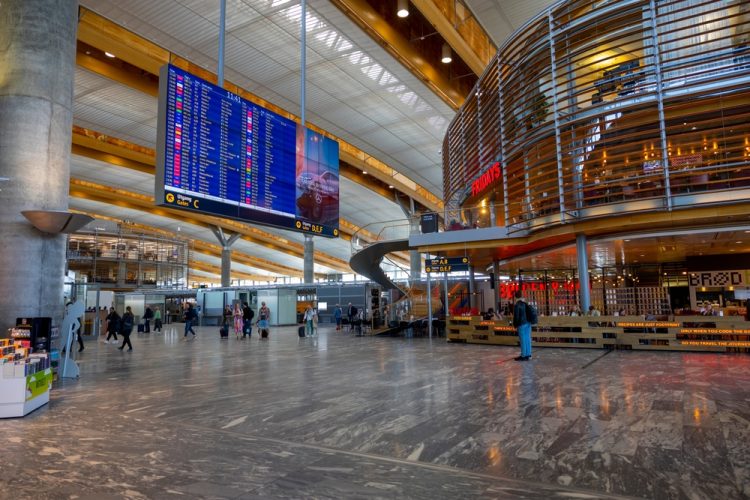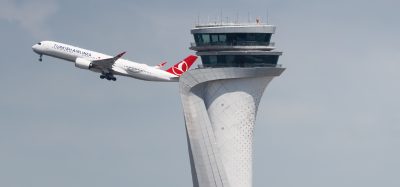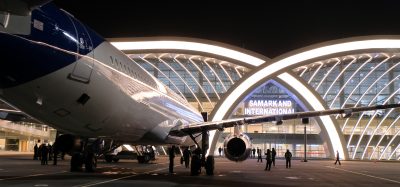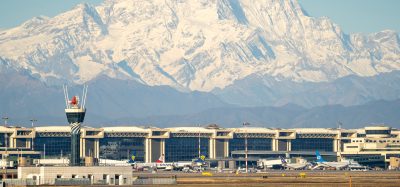Avinor in a strained financial situation for the next few years, says CEO
- Like
- Digg
- Del
- Tumblr
- VKontakte
- Buffer
- Love This
- Odnoklassniki
- Meneame
- Blogger
- Amazon
- Yahoo Mail
- Gmail
- AOL
- Newsvine
- HackerNews
- Evernote
- MySpace
- Mail.ru
- Viadeo
- Line
- Comments
- Yummly
- SMS
- Viber
- Telegram
- Subscribe
- Skype
- Facebook Messenger
- Kakao
- LiveJournal
- Yammer
- Edgar
- Fintel
- Mix
- Instapaper
- Copy Link
Posted: 2 January 2024 | International Airport Review | No comments yet
A real increase in aviation taxes as well as changes in other financial framework conditions is required to justify the recognised values in airport and air navigation operations.


Avinor in a strained financial situation for the next few years
“The Ministry of Transport and Communications stipulates that the basic structure of the company shall remain, but that the financial framework conditions must be strengthened. Avinor appreciates that. At the same time, we expect the financial situation to be strained for the next few years, also with the measures now outlined by the owner,” says CEO Abraham Foss.
A real increase in aviation taxes as well as changes in other financial framework conditions is required to justify the recognised values in airport and air navigation operations. In the consolidated financial statements as of 30 September 2023, it is assumed that the state will secure financial framework conditions that defend recorded values.
“Traffic remains at lower levels than before the pandemic, and forecasts of future traffic growth indicate that recovery will take longer than previously anticipated. In addition, there has been a significant real decline in airport taxes, which account for 50 per cent of Avinor’s revenues, since 2019,” says Abraham Foss.
A total of 37.2 million passengers travelled through Avinor’s airports during the first nine months of 2023, an increase of 12.2 per cent over the corresponding period in 2022. The number of aircraft movements increased by 2.9 per cent. Domestic air movements decreased by 0.2 per cent, while foreign aircraft movements increased by 14.3 per cent. Traffic is still not back to pre-pandemic levels. Compared to the first nine months of 2019, the total number of passengers is 10.1 per cent lower in 2023. Air movements are 7 per cent below 2019 in total for the corresponding period. Traffic trends and travel patterns indicate that it is within holiday and leisure travellers that the catch-up has been strongest. Business traveller numbers remain below pre-pandemic levels.
This indicates a weaker revenue development than previously assumed, while a cost base that does not vary with revenues to the same extent, as well as underregulated airport taxes, changed framework conditions in the form of the elimination of duty-free quotas, and the addition of new tasks and associated costs also have a negative impact. To retain sustainable financial framework conditions, Avinor has thus signaled the need for a real increase in fees. In a letter dated 16 November 2023, the Ministry of Transport states that the government will come up with measures to ensure that passengers and airlines continue to receive a good service across the country and that no airports will be closed.
Revenues increase, but not sufficient to cover costs
Operating revenues for the first nine months of 2023 amounted to 8717 million kroner (Nkr), representing an increase of 15.2 per cent compared to the corresponding period in 2022. As a result of traffic volume and strengthened commercial earnings, operating revenues in airport operations increased by 15.5 per cent compared with the corresponding period last year. Traffic revenues had a weaker development than traffic growth, with a reduction in traffic income per passenger of 1 per cent. For the first nine months of 2023, commercial revenues accounted for 57.3 per cent of airport operating revenue.
Total operating expenses in the first nine months of 2023 amounted to 5798 million kroner (Nkr) compared with 5273 million kroner (Nkr) for the corresponding period in 2022. This is an increase of 9.9 per cent. Higher volume-dependent costs for personnel and safety leads to an increase in operating costs, in addition to an increase in repair costs for operating equipment because of increased use, as well as increased costs of parts and labour. The cost development must be seen in conjunction with the increase in traffic volume, as well as generally high inflation.
Uncertainty related to changes in travel habits affects revenues
“There is uncertainty associated with future levels of air traffic, especially with regard to how technology, climate, and consumer economics may lead to changes in travel habits. Global geopolitical and economic developments also increase uncertainty,” says Abraham Foss.
“Avinor is aware of the challenges the group faces when growth and greenhouse gas emissions are to be combined in sustainable value creation. Together with the airlines, Avinor will work for innovation and technology improvements to reconcile the goals of emission cuts and expected traffic growth. Mobility and efficient air transport are central to societal development and crucial in the development of Norwegian travel and business. New technology will change aviation as we know it today. Avinor’s social mission means that the group must facilitate further development and expected changes in air traffic,” says Foss.


















